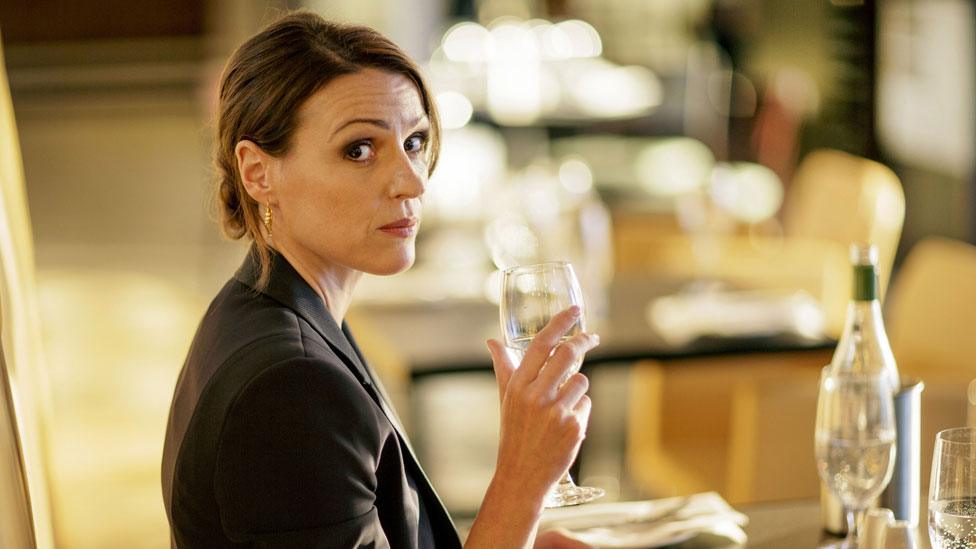Vigil: Submarine drama explores 'isolating and tense' life and death at sea
- Published
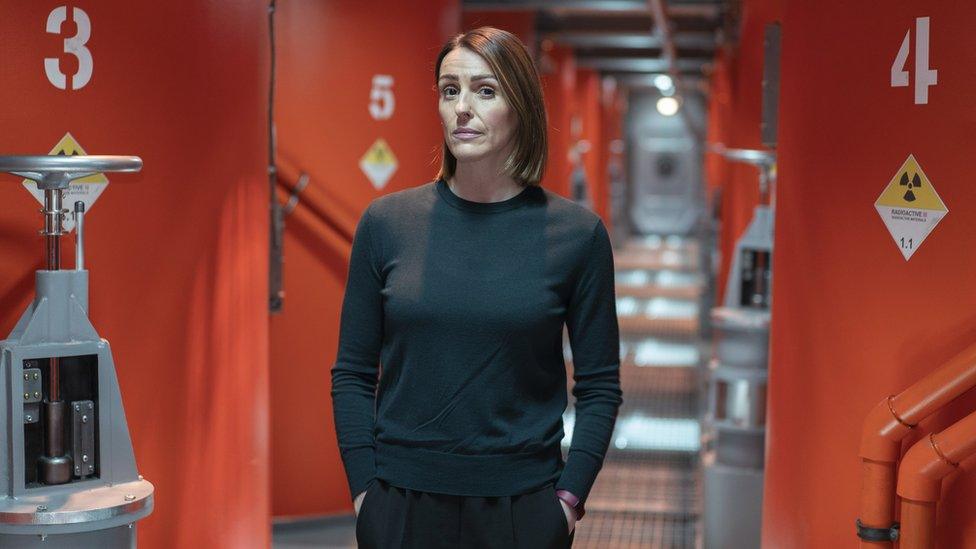
Suranne Jones has previously starred in Doctor Foster, Gentleman Jack and Scott & Bailey
A new BBC drama starring Suranne Jones and Martin Compston takes viewers aboard HMS Vigil, a fictional Royal Navy submarine, and is tipped to be one of the most gripping TV shows of the year.
Setting a film or TV series at sea isn't always a recipe for success, as anybody still recovering from 1997's Speed 2 will tell you.
Fortunately, BBC One's latest drama, which begins on Sunday, has snubbed unstoppable luxury cruise ships in favour of a murder mystery on board a nuclear-powered ballistic missile submarine.
Inspired by the UK's real-life Trident fleet, the fictional HMS Vigil patrols British waters from a classified location. It is out there somewhere beneath the water's surface, ready to defend the country by launching a thermonuclear warhead - should it ever be required.
In reality, the very existence of a British nuclear deterrent is controversial - but this show's purpose isn't to tackle that debate. Instead, it examines the human stories behind the British crew on board, who eat, sleep and work in close quarters for months on end.
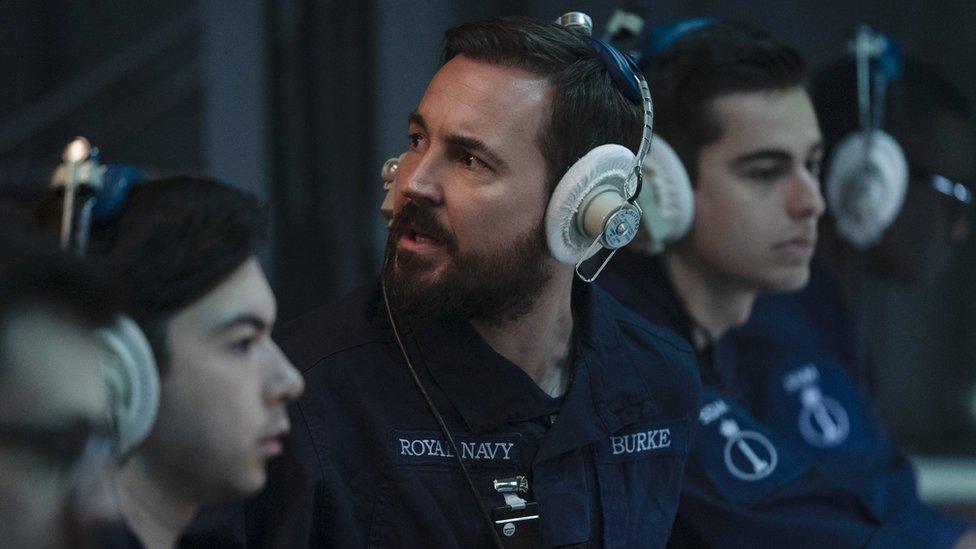
Line of Duty star Martin Compston reverts to his real-life Scottish accent in the series
Early in the first episode, one crew member is found dead - apparently after taking heroin. A police detective, DCI Amy Silva (played by Jones), is tasked with investigating whether there was more to his death than meets the eye. She suspects there is.
DCI Silva must board the submarine, interview crew members and look for clues in an effort to piece together what happened in the hours before the death. HMS Vigil is a distinctly unpleasant place to conduct such an investigation, with no natural light and a constant feeling of claustrophobia and isolation.
"Being trapped under the water, and Amy having face things she hadn't faced, was a really interesting concept for me - on top of it being a really good cop show," Jones said at Vigil's London launch.
"We talked about all the different aspects of Amy because I didn't want anything to get lost. It's such a busy script, because of the land investigation and the underwater investigation, and as you'll see, you have to keep up with it because there are a lot of strands to keep on top of, and a lot of characters."
It's true Vigil is a show viewers will need to give their full attention to in order to follow the plot. In addition to the investigation taking place on board, DCI Silva's counterparts on land are following their own leads - while only having very limited (and one-way) communication with her.
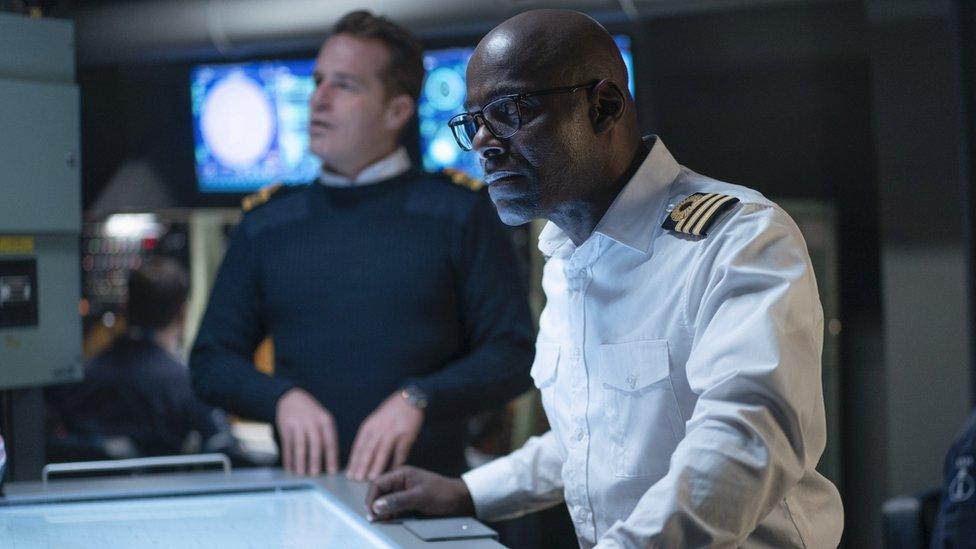
Paterson Joseph plays the captain, caught up in the conflict between the Navy and the police force
Writer Tom Edge, whose previous work includes Judy and The Crown, says that in addition to "the pleasures of a locked room mystery", he was interested in the human stories behind the fiercely dedicated crew members.
"They do this incredibly hard work in isolating, tense conditions," he says. "And they have to subsume every other part of themselves while they do that job, and live this twilight existence. That was fascinating and made it a really human story."
The show has been made by World Productions, who were also behind Bodyguard and Line of Duty. "They were looking for stories which had real scale and said something about Britain today and its place in the world, and that would be exciting," Edge explains. The team researched Vanguard-class submarines which, he says, "brought to life the pressures those crews are under".
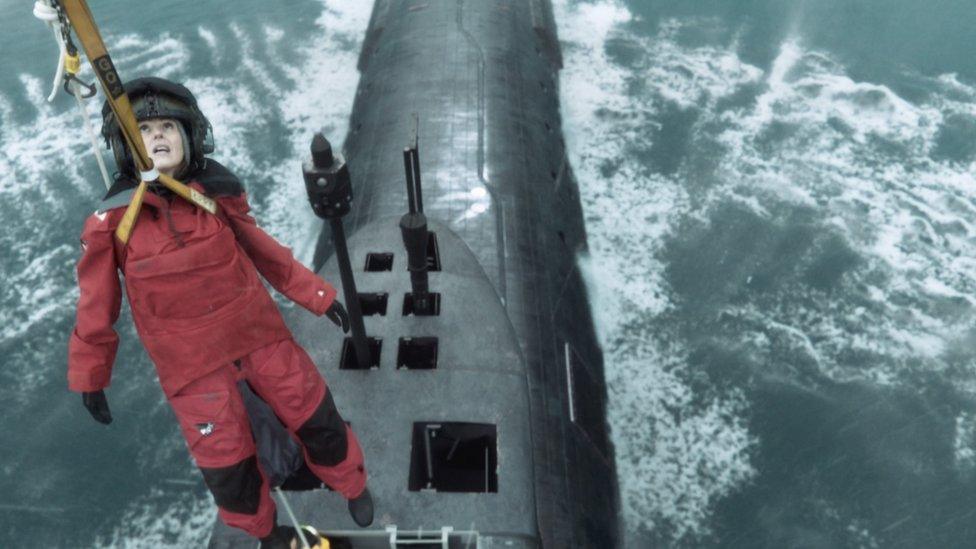
DCI Silva has to be lowered on to HMS Vigil from a helicopter in episode one
The engrossing first episode has broadly gone down well with critics. The action-packed opening sequence pulls you in and drags you along, quite literally, for the ride.
"Vigil chucks you right in at the deep end with a tense curtain lifter that immediately whets your appetite," said Digital Spy's Abby Robinson, external. "There's no danger of clock-watching here. Throughout the first two episodes, there are multiple developments and moments fraught with threats that carry you along on their currents."
It's not perfect. The drama's lead character inevitably has flashbacks to some kind of traumatic event from her past which still tortures her - one of the most tiresome of TV tropes. These snippets will no doubt become relevant to the plot later in the series, but fortunately it doesn't pull down the pace and quality of the launch episode's A-storyline too much.

What is Trident?
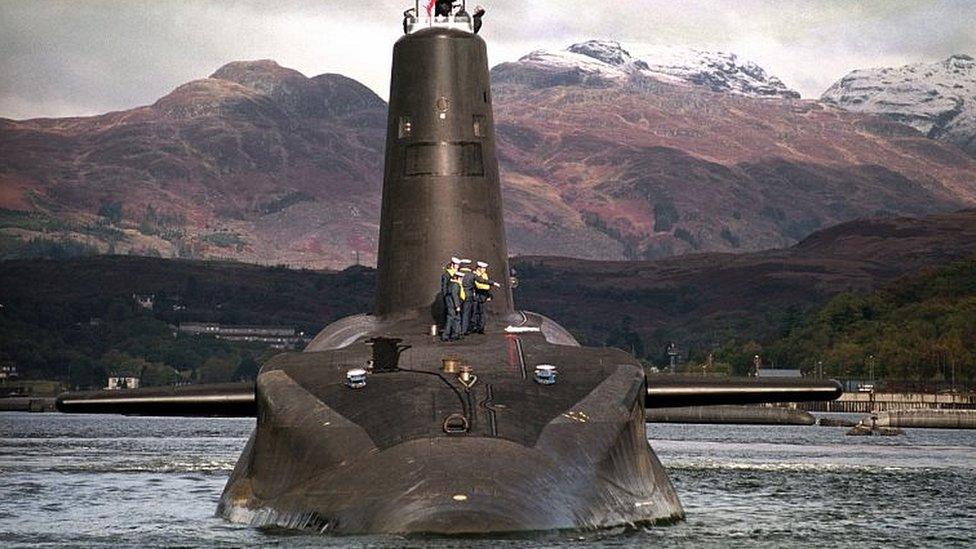
Since 1969, according to government documents, external, a British submarine carrying nuclear weapons has always been on patrol beneath the waves, somewhere in the world's oceans.
The logic is to deter a nuclear attack on the UK because, even if the nation's conventional defence capabilities were destroyed, the submarine would still be able to launch a catastrophic retaliatory strike on the aggressor, a concept known as mutually assured destruction.
The submarines carry up to eight Trident missiles. Each can be fitted with a number of warheads, which can be directed at different targets.
Each of the four submarines carries a sealed "letter of last resort" in the prime minister's hand, containing instructions to follow, external if the UK has been devastated by a nuclear strike and the government annihilated.
Those who object say the UK should not threaten to or use nuclear weapons, even in the most extreme circumstances, and that the consequences of doing so would be so grotesque as to be unfathomable.

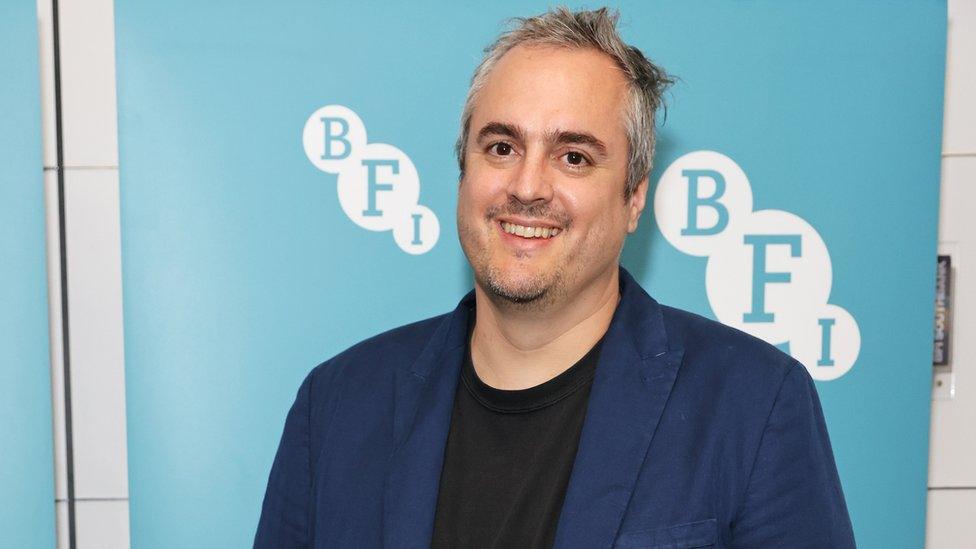
Screenwriter Tom Edge's previous credits include Netflix's The Crown and the Oscar-winning Judy
Edge says he was intrigued by the idea of crew members' contact with friends and family being extremely limited. He notes that "information can only go one way" - which, for a screenwriter, is a scenario with great plot potential.
He explains: "One of the things I found very moving early on was the fact the people serving on these boats get one message a week, from one designated family member, which is no more than 100 words.
"It's vetted seven times by the Navy for any possible codes. And it's not allowed to ever include bad news.
"So you go on board knowing that if your partner is killed in an accident or something like that, the first you'll know of it is an hour before the end of the patrol, you'll be taken aside by the captain and told what has happened in your absence.
"And that's all about keeping crews stable and not creating anything stressful. And I found that very moving."
Vigil is airing weekly on Sunday nights on BBC One, with episodes then available on iPlayer.
Related topics
- Published24 July 2021
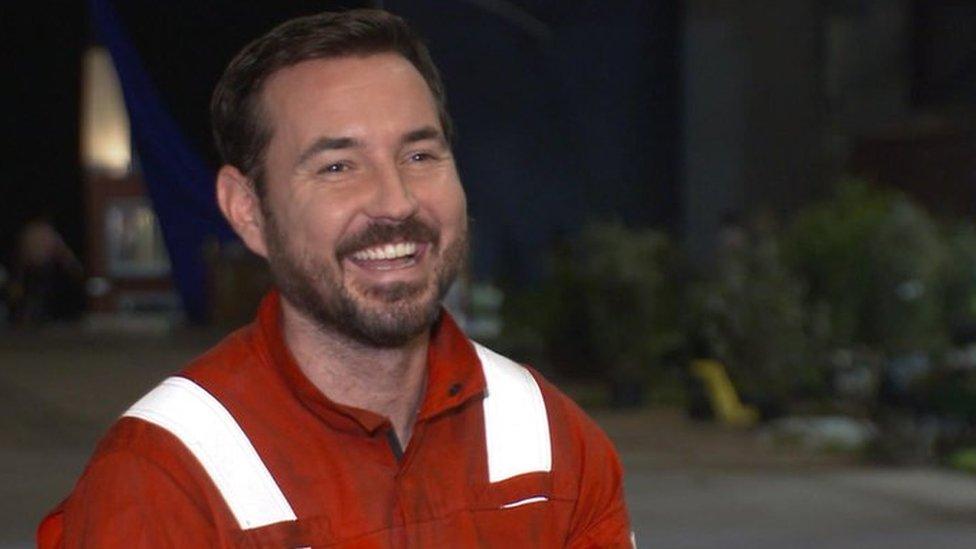
- Published21 August 2017
